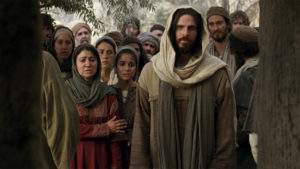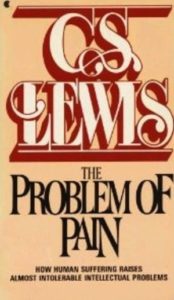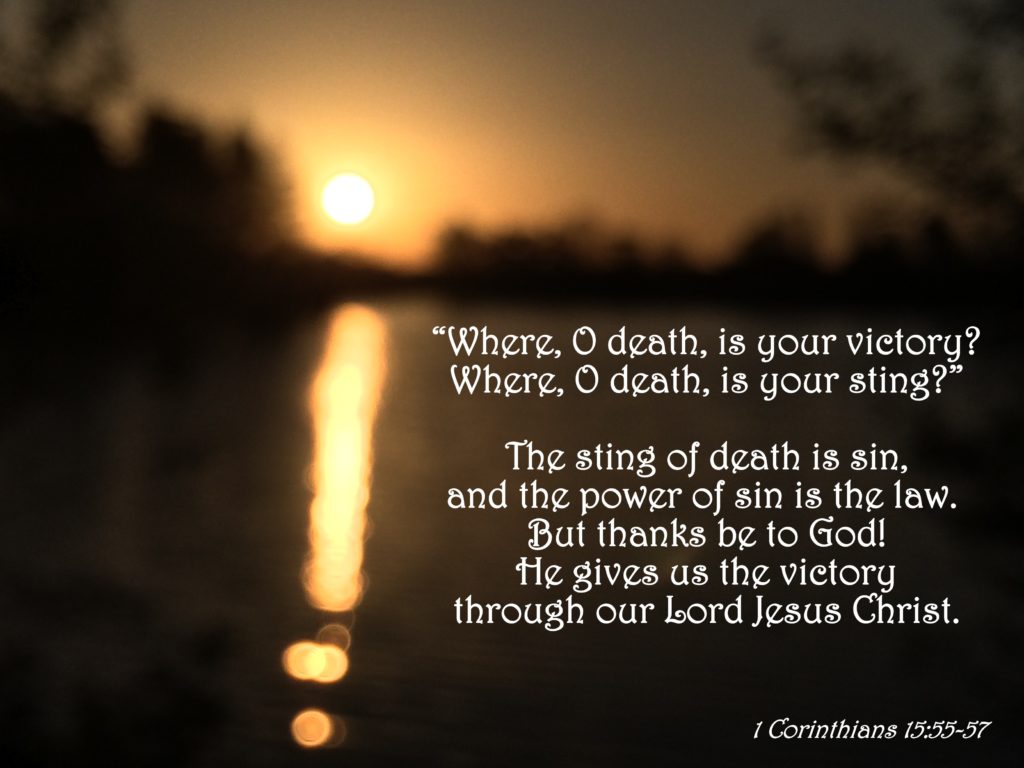Death is something we all have to face. For most of us, it is faced first in the loss of someone we know and love. Ultimately, we have to face it in our own lives, recognizing that it is inevitable, not something we can avoid forever, although in Christ we know it isn’t final, that there is an unfathomably wonderful forever on the other side of that fearful doorway.
Yet death was never meant to be. It is an intruder in the world God created, brought into that world by rebellion. That rebellion destroyed God’s intent for relationship with all the humans that were to follow our first parents.
 Death hurts. We shouldn’t pretend it doesn’t. C. S. Lewis, in his essay, “Some Thoughts,” notes that “we follow One who stood and wept at the grave of Lazarus . . . because death, the punishment of sin, is even more horrible in His eyes than in ours.”
Death hurts. We shouldn’t pretend it doesn’t. C. S. Lewis, in his essay, “Some Thoughts,” notes that “we follow One who stood and wept at the grave of Lazarus . . . because death, the punishment of sin, is even more horrible in His eyes than in ours.”
Maybe we don’t stop and think about that. We loath death, but God loathes it even more since it mars His perfect creation. Lewis continues in his thought experiment about Jesus at the tomb of Lazarus:
The nature which He had created as God, the nature which He had assumed as Man, lay there before Him in its ignominy; a foul smell, food for worms. Though He was to revive it a moment later, He wept at the shame; if I may here quote a writer of my own communion, “I am not so much afraid of death as ashamed of it.”
Why shame? Because death is unnatural. It never should have been. “We know that we were not made for it,” Lewis comments. “We know how it crept into our destiny as an intruder; and we know Who has defeated it.”
And therein lies the hope for mankind—at least for those who will come to the Cross and receive the New and Eternal Life promised there.
 There are some who say “death ought not to be final, that there ought to be a second chance,” Lewis writes in The Problem of Pain. But he offers his own brand of response to that objection:
There are some who say “death ought not to be final, that there ought to be a second chance,” Lewis writes in The Problem of Pain. But he offers his own brand of response to that objection:
I believe that if a million chances were likely to do good, they would be given. But a master often knows, when boys and parents do not, that it is really useless to send a boy in for a certain examination again. Finality must come sometime, and it does not require a very robust faith to believe that omniscience knows when.
The risen Christ has “already disarmed” the enemy of our souls, Lewis asserts in the essay mentioned above.
But because we know that the natural level also is God’s creation we cannot cease to fight against the death which mars it, as against all those other blemishes upon it, against pain and poverty, barbarism and ignorance.
Because we love something else more than this world we love even this world better than those who know no other.
We must always remember:

